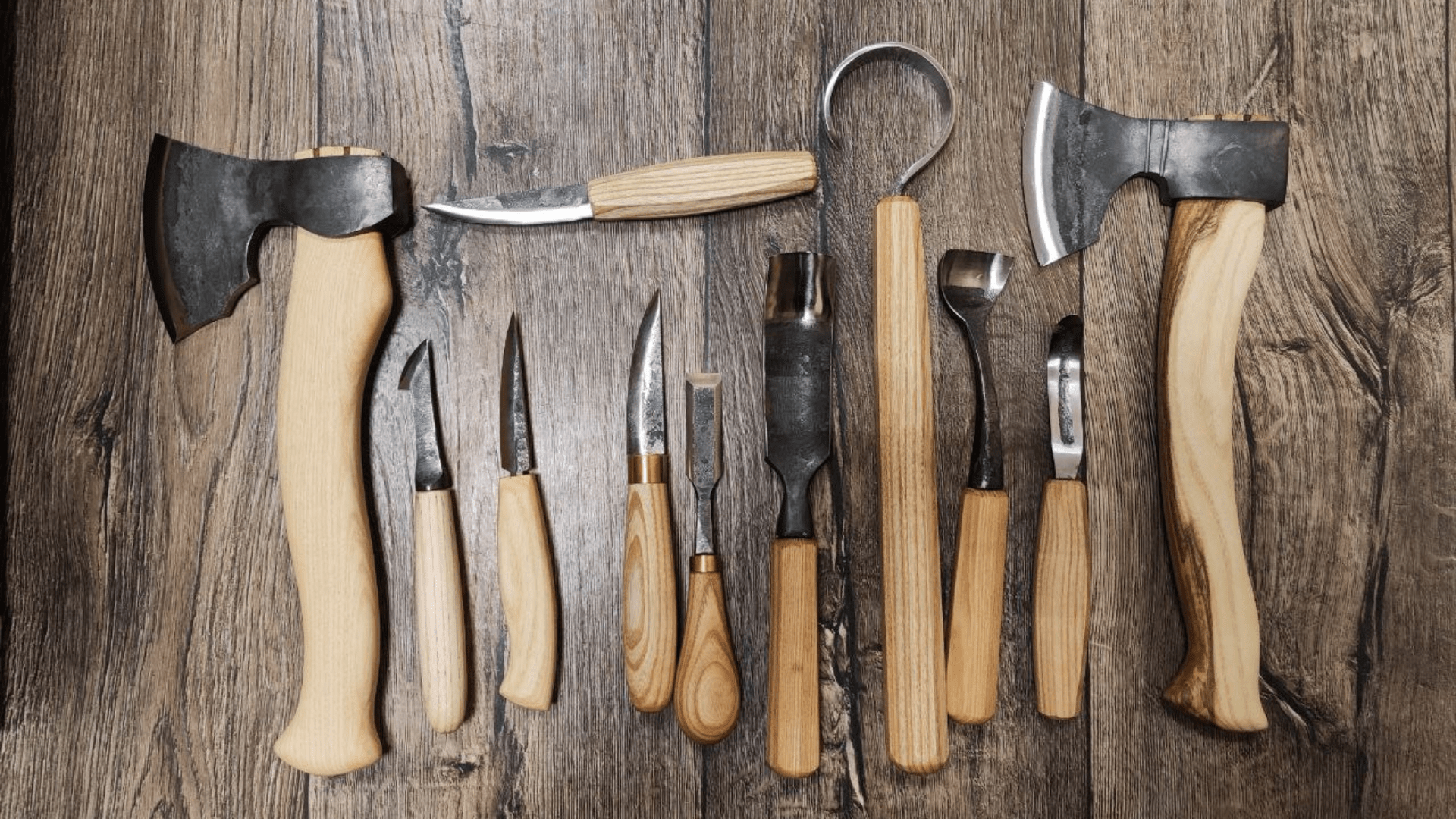Starting a new hobby like wood carving can be exciting, yet daunting if you're unsure about the tools you need. Wood carving requires precision, patience, and the right set of tools. In this blog post, we'll explore the essential tools every beginner should have in their toolkit to kickstart their journey into the world of wood carving.
1. Carving Knives
One of the most basic and indispensable tools in wood carving is the carving knife. It's used for whittling and detailing. A good starter set might include a few different sizes, from small detail knives to larger ones for slicing through chunks of wood.
2. Gouges
Gouges come in various shapes and sizes, each designed to scoop out wood to create curves, hollows, and rounds. For beginners, a basic set of gouges can help in tackling most projects. Look for "U"-shaped and "V"-shaped gouges as starters.
3. Chisels
While similar to gouges, chisels have a flat edge and are used for making straight cuts into wood. A couple of different sizes will be useful for cleaning out corners and creating defined lines.
4. Mallet
A wooden mallet is essential for driving your chisels and gouges without causing damage to the tools. A light, well-balanced mallet can make all the difference in controlling your cuts and avoiding hand fatigue.
5. Sharpening Stones
Keeping your tools sharp is crucial in wood carving. A good sharpening stone or honing stone will ensure your chisels, gouges, and knives cut cleanly and precisely. Beginners might consider a dual-grit sharpening stone to start.
6. Wood Carver’s Bench
Having a stable work surface is as important as the tools you use. A carver's bench or any sturdy table can serve as a dedicated space where you can securely clamp down your wood pieces.
7. Clamps and Vises
To keep your wood in place while you carve, you’ll need clamps or a vise. This will not only improve accuracy but also safety, preventing the wood from slipping as you work.
8. Safety Gear
Never overlook safety. Carving gloves and safety glasses should be part of your toolkit to protect your hands and eyes from splinters and flying chips.
9. Sanding Tools
After carving, you'll likely need to sand your project to give it a smooth finish. Having a variety of sandpaper grits, from coarse to fine, will help refine your work.
10. Beginner’s Wood Carving Kit
Many retailers offer beginner's kits that include a selection of basic tools and a few pieces of softwood. These kits can be a great way to get started with all the essentials bundled together.
Once you have your basic toolkit assembled, you can start practicing with simple projects. Consider beginning with softwoods like basswood or pine, as they are easier to carve and less frustrating for novices. There are numerous online tutorials and local classes that can help you get started and improve your technique.
Wood carving is a rewarding hobby that not only enhances your creativity but also provides a relaxing way to pass time. With the right tools in hand, you'll be well on your way to creating beautiful pieces of art. Happy carving!

Share:
The Art of Sharpening Wood Carving Tools